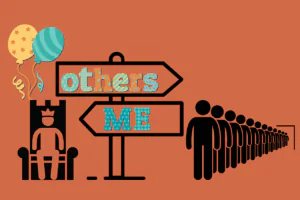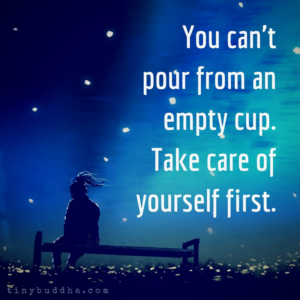Originally posted October, 2021
You probably know that childhood trauma refers to any significantly distressing experience a person was exposed to as a child. Because we all experience life in different ways, what may be traumatic for you may not be for someone else. What really matters is how you perceived the situation and how you felt during and after. However, if you’re married to someone with childhood trauma, neither of you may fully understand how childhood trauma affects relationships.
When you’re a survivor of childhood trauma you may still continuously scan the environment for danger, even if you’re with a sympathetic spouse. As a childhood trauma survivor, you may often misinterpret things that your partner says or does, construing it as a personal attack. You may hear and take offense to what hasn’t been said and defend yourself even when there is no cause. You might simply leave, either physically or emotionally. When you’re triggered, your nervous system perceives your spouse as just another source of potential danger, rather than a source of comfort or support.
Related Reading: Three Ways Childhood Trauma can Affect Adult Relationships
When you have experienced trauma, either as a single event or a prolonged series of events, it influences your life until you resolve it. Childhood trauma can rupture secure attachment, an essential part of developing into a healthy adult able to form and maintain healthy interpersonal relationships. When people you depend on for survival hurt you or aren’t present, it influences how you view human connection.
Childhood Trauma Effects on Relationships
For many survivors of abuse, the healing journey can start with a key understanding: how childhood trauma manifests in adult life and in interpersonal relationships. This understanding helps develop the self-awareness and compassion required in your healing journey.
Two key areas where childhood trauma affects adult relationships are trust and emotional intelligence.
Trust is a vital ingredient to forming and maintaining any healthy interpersonal relationship. But if you have experienced the trauma of childhood abuse, your ability to trust others has been compromised. Therefore, you might experience resistance or reluctance to be open and vulnerable with others out of fear that the other person will hurt or betray you.
Emotional intelligence (EQ) is the ability to perceive and manage your own emotions and those of other people in different situations. This boils down to awareness and emotional regulation. Some examples of how EQ manifests in relationships include empathy, emotional self-awareness, the ability to express how you feel, the ability to pause before reacting, and accountability. If you have experienced childhood trauma, you may have difficulty developing one or more EQ skills.
Attachment Styles
Research has shown that people with childhood trauma report lower quality relationships and higher levels of insecure attachment. But what is attachment? Attachment Theory looks at the way you relate to others to establish or avoid intimacy. The theory suggests there are four main attachment styles:
- Secure
If you are secure, you’re open to establishing trusting and close relationships with other people. You don’t avoid intimacy but also don’t depend entirely on someone else.
- Anxious or Anxious-Preoccupied
If you have this attachment style you experience significant fear of being abandoned and feel an almost constant need to be validated. In addition, you may feel your partner rarely cares enough for you.
- Dismissive-Avoidant
You probably experience a fear of emotional intimacy if you have this attachment style. This fear may lead you to avoid getting too close to others, or to mistrust your significant others. Having this style may also lead others to feel you are emotionally unavailable.
- Fearful-Avoidant
With this attachment style you may crave attention and love from significant others in your life, but at the same time avoid emotional intimacy. You need to feel loved and attended to, but usually avoid developing close romantic relationships.
If you recognize an insecure attachment style in yourself or your partner, know that change is possible and that you can develop a more secure attachment style as an adult. A therapist experienced in attachment theory can help you make sense of your past emotional experience and become more securely attached in the present.
Does Childhood Trauma Affect Adulthood?
Childhood trauma may also affect relationships in the way you communicate with others as an adult. For example, if you grew up in a home with frequent yelling matches, you may reenact these exchanges with your partner. You may believe this is how you address conflict in a relationship – or you may do the exact opposite of what you experienced growing up.
Some communication styles that may be related to how others communicated with you (or others) early in your life include:
- Passive: indirect, self-denying, or apologetic
- Passive-aggressive: emotionally dishonest and self-enhancing at the expense of others
- Aggressive: inappropriate for many situations, blaming, controlling, direct, and attacking
Communication styles are something you learned and developed over time. The good news: you can also unlearn them and learn how to communicate in different ways.
Healing from Childhood Trauma
Some of the coping strategies you learned from childhood may have been appropriate in the past. However, it may be time to leave them behind. According to Colleen Hilton, a licensed marriage and family therapist in Seattle, “It becomes a problem later in life when the behavior no longer fits the circumstances. It’s like using old technology from the 1990’s to engage with the internet today. It doesn’t work well.”
Healing begins when you begin to learn how dependent you are on your childhood “blueprints” and negative self-talk. To heal, you must tell your story, let go of clinging to it, and connect the dots. Question your automatic assumptions and recognize how your brain is keeping you stuck in a “Groundhog Day” of perpetual torment and diminished expectations in your relationships.
The most important factor for healing developmental trauma is to find a safe therapeutic space where trauma can be processed without collapsing into the old behaviors. At Life Care Wellness we offer individual therapy and couples counseling. Contact us to begin your healing and strengthen your relationships.
Rhonda Kelloway is the owner and principal therapist at Life Care Wellness, a group psychotherapy practice in Glen Ellyn, Sycamore, and Chicago (Jefferson Park neighborhood), Illinois. She is a trauma specialist utilizing a Somatic Experiencing framework to utilize the body’s wisdom in healing. She also uses EMDR and a variety of traditional psychotherapy approaches in her work. In addition to being a psychotherapist, she is a trained divorce and family mediator.





